
The key to maintaining an edge in the beverage industry is continuous adaptation to the rapidly changing landscape. This includes introducing new flavors, limited edition releases, and catering to the consumer's ever-evolving preferences, all while managing the logistical demands of high production volumes. However, many beverage companies are burdened by the limitations of outdated or manual labeling systems. These systems struggle to keep pace with the diverse can sizes and the sheer scale of production required in today’s market. The result is often a delayed response to market trends, inconsistency in label placement, a dilution of the brand’s image, and a negative impact on customer satisfaction.
The high-performance inline can labeling machines provide a solution to these pervasive issues. A label applicator delivers unparalleled versatility and precision across multiple can sizes and shapes. Their adaptability is key, allowing for a seamless transition between different product lines without sacrificing the speed or quality of label application. This capability is essential for maintaining a consistent brand presentation across all product offerings. By significantly streamlining the labeling process, these beer can labelers empower beverage companies to boost their packaging efficiency. This facilitates a quicker response to market demands and ensures that each product that comes off the line does so with a label perfectly placed.
Meeting the Dynamic Demands of the Beverage Industry
Consumer trends are constantly shifting for new flavors and types of beverages and the packaging itself. This presents a complex challenge for packaging operations, particularly when it comes to labeling. A traditional label applicator, which might have been designed with a one-size-fits-all approach, often struggles to keep pace with the industry's needs. They can be rigid and inflexible, leading to operational bottlenecks, increased waste from inaccuracies, and ultimately, a failure to meet both retailer and consumer expectations. These systems can result in beer can labels being misapplied or placed inconsistently, which not only affects the product's aesthetic appeal but can also harm the brand's reputation in the eyes of the consumer.
Moreover, the beverage market is known for its rapid innovation and the continuous introduction of new products and limited-edition lines to capture consumer interest. This fast-paced environment necessitates packaging operations that are not only efficient but highly adaptable. Inline labeling machines re designed to accommodate a vast range of can sizes and shapes without the need for lengthy changeovers or downtime. With the ability to quickly adjust to different packaging types, these machines ensure that each label is applied with precision, maintaining the high standards of quality and consistency that brands strive for. By eliminating the inefficiencies and inaccuracies associated with traditional labeling systems, these machines not only boost the operational capacity of beverage companies but also enhance their agility and responsiveness to market trends.
Overcome Labeling Challenges With State-of-the-Art Solutions

In the beverage sector, companies are constantly navigating a maze of production challenges. By integrating inline labeling machines into their production lines, beverage companies not only streamline their operations but also fortify their capability to meet market demands with confidence.
Meeting High Demand With Precision
Balancing the pressure to meet high demand, especially during peak seasons or product launches, with the need for flawlessly applied beer can labels is a constant challenge. Traditional labeling systems often struggle to provide the required efficiency without sacrificing precision, leading to inconsistencies that can tarnish a brand's reputation. These labelers are a solution, specifically engineered to address and conquer these obstacles. With advanced mechanisms, they offer the speed necessary to keep up with the high-volume production demands of beverage companies. These labelers excel in precision, using sophisticated sensors and software to ensure accurate and consistent label application across all products.
Need for Efficiency
Efficiency in production is not just about speed; it is about maximizing output while minimizing waste and downtime. This is where the advanced design of inline can labeling machines comes in. Engineered for continuous operation, these machines drastically reduce the need for stoppages, whether for maintenance or reloading, enhancing overall productivity. Their robust construction is tailored to withstand the demands of a high-volume production environment, ensuring that beverage companies can maintain a steady pace of operation and effectively manage resources.
Consistency in Labeling
Maintaining a high level of consistency in labeling is essential for preserving the brand image and ensuring customer loyalty. Inconsistent label placement or appearance can detract from the overall product quality in the eyes of consumers. Inline beer can labelers address this challenge directly with sophisticated sensors and precision application technology. These features work together to guarantee that each label is applied accurately and consistently without the need for manual intervention. This consistent reliability is vital for upholding a brand's reputation for quality and ensuring that each product that hits the shelves meets the company's strict standards.
Operational Excellence With Inline Labelers
Embracing high-performance inline can labeling machines offers advantages that go beyond simple operational efficiencies, redefining the production capabilities of beverage companies.
|
|
Unmatched Production Speed and Throughput: The ability to swiftly meet market demand is crucial. High-performance inline labelers significantly elevate production capabilities, allowing companies to efficiently manage peak demand periods and product launches. This accelerated production not only keeps businesses competitive but also ensures they can capitalize on market opportunities as they arise. |
|
|
Ensuring Consistency and Enhancing Visual Appeal: Accuracy in label placement is vital for maintaining a product's aesthetic integrity. Inline can labeling machines excel in applying beer can labels with precision, ensuring a consistent and professional presentation for every product. This uniformity is essential for reinforcing brand image and fostering customer trust, as it directly influences consumer perception and satisfaction. |
|
Cost-Effectiveness by Reducing Manual Labor: The shift towards automation with inline can labeling machines reduces the reliance on manual labor, optimizing workforce efficiency and slashing long-term operational costs. Reducing manual tasks minimizes the likelihood of human error, further boosting the consistency and reliability of product output. The savings from decreased labor requirements and waste can be reinvested into other areas of the business, driving growth and innovation. |
|
Impact on Efficiency and Product Appeal: The integration of high-performance inline labelers into beverage production lines addresses several key operational challenges. By improving production speed, ensuring label accuracy, and reducing costs, a label applicator significantly enhances both production efficiency and the overall appeal of the product. For beverage companies, this helps them not only meet but exceed market expectations, securing a strong brand presence, and cultivating customer loyalty. |
The Advanced Features of Inline Can Labeling Machines
The realm of inline can labeling machines is one where innovation and technology converge to create solutions that significantly streamline the packaging process for beverage companies. These machines are not just tools; they are designed to tackle the intricacies of modern production demands with unparalleled efficiency.
Size Adjustment
Inline labelers have unparalleled adaptability, catering to a broad spectrum of product sizes and shapes — from energy drink cans to craft beer containers. This flexibility is achieved by adjusting guides, bumpers, and conveyors. The label head can also be fine-tuned by adjusting the hand wheels to ensure optimal alignment for various products. Integrated sensors play a crucial role in this process by detecting the presence of the product and triggering the label head to dispense labels with precision. This adjustability enables continuous production flow and precise label placement across diverse product lines, eliminating the need for multiple pieces of equipment.
Precision Labeling Technology
Inline can labeling machines have precision labeling technology. With advanced sensors and control systems, these machines achieve unparalleled accuracy in label application, ensuring each label is perfectly aligned. This meticulous attention to detail not only boosts the product's shelf appeal but is also crucial for enhancing brand recognition and fostering consumer trust.
Integration With Existing Production Lines
The capability to integrate seamlessly with existing production lines is another significant advantage of inline beer can labelers. Designed to complement and connect with other packaging equipment, such as fillers and cappers, these machines enhance a production line. Sophisticated software and connectivity ensure smooth communication and synchronization across different components of the production line, resulting in a unified and efficient operation that significantly reduces downtime and maximizes output.
Strategically Integrating Inline Can Labeling Machines
The decision to integrate inline can labeling machines into beverage packaging operations is a strategic move that can significantly enhance production efficiency and product presentation. However, to ensure a seamless transition and maximize the benefits of this technology, companies must consider several factors.
Ensure Compatibility With Current Packaging Lines
One of the first steps in the integration process involves evaluating the compatibility of the new inline can labeling machines with existing packaging lines. This compatibility extends beyond physical connections to include software and communication protocols. This ensures your entire production line is in sync. Understanding the technical specifications and requirements of both the existing system and the new equipment is essential to identify any potential integration challenges. In some cases, minor modifications or upgrades to the current system may be necessary to fully leverage the capabilities of the inline can labeling machines.
Assess Machine Size and Space Requirements
Space considerations play a crucial role in the integration of new equipment. Inline labelers vary in size based on their features and capacities. Assessing the available space within the production facility is paramount. This assessment should account not only for the machine's size but also for any additional space needed for operator access, maintenance, and future expansions. Planning for space requirements ensures that adding an inline can labeling machine enhances the production process without creating logistical constraints.
Evaluate the Financial Considerations
The financial aspect of integrating inline labelers into beverage operations cannot be overlooked. While the initial investment in high-performance labeling equipment may be significant, it is important to consider the long-term benefits and potential return on investment (ROI). These benefits include increased production efficiency, reduced labor costs, enhanced product quality, and improved market responsiveness. A detailed cost-benefit analysis will help highlight the operational savings and revenue opportunities offered by the new equipment, facilitating a more informed decision-making process.
Planning for a Smooth Implementation Process
Planning for a smooth implementation process is essential for minimizing disruptions to production and ensuring a quick return to full operational capacity. This planning involves coordinating delivery and installation schedules, training staff on the operation and maintenance of the new equipment, and conducting thorough testing to validate performance and integration with existing systems. By anticipating and addressing potential challenges in advance, beverage companies can ensure a successful transition to using inline can labeling machines.
Upgrade Your Packaging With High-Performance Labelers

Making strategic investments in your packaging operations can set your brand apart. Adopting high-performance inline can labeling machines is not merely an upgrade — it is a transformative step that propels your operational capabilities forward, aligning your production processes with the future of the industry. Beverage companies aiming to exceed market expectations must evaluate their current labeling operations. Identifying bottlenecks, inefficiencies, or quality inconsistencies in your existing setup can reveal significant opportunities for enhancement and growth.
However, recognizing the need for an advanced label applicator is just the beginning. The journey towards operational excellence requires a partner who understands the nuances of beverage packaging and can offer tailored advice to match your specific needs. Requesting a labeling equipment consultation is a proactive step toward uncovering the full potential of your packaging operations. Whether you're looking to improve efficiency, enhance product appeal, or future-proof your operations, our experts are here to guide you through every consideration, ensuring you make an informed decision that aligns with your long-term business goals. Contact us today to schedule your free labeling equipment consultation and take the first step toward redefining your packaging operations.
.webp?width=200&height=114&name=2x-Packleader-logo-large%20(1).webp)

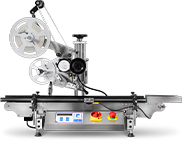
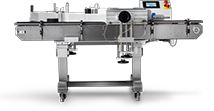
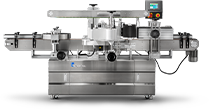
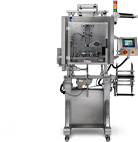
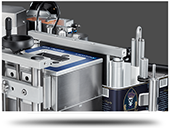
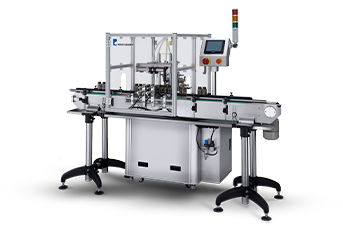
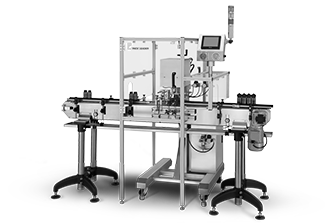
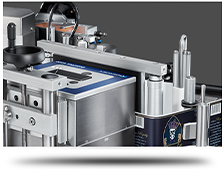





.webp?width=360&name=2x-color-logo%20(1).webp)